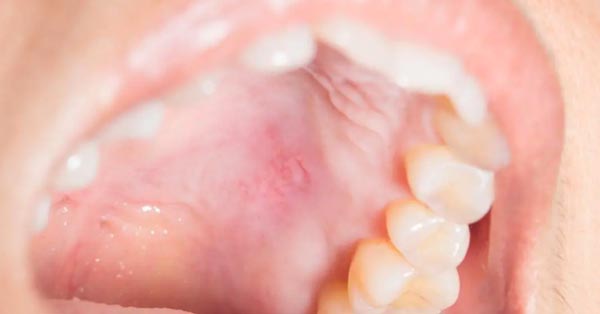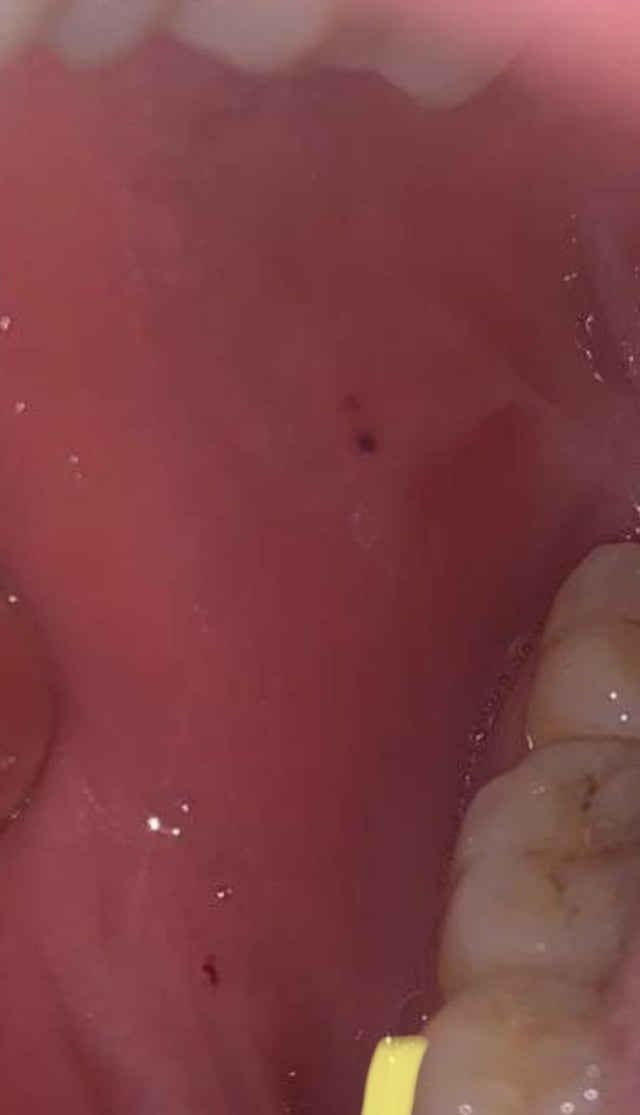What Causes Roof Of Mouth Swell? Fast Relief Tips

The roof of the mouth, also known as the palate, is a sensitive area that can become swollen due to various reasons. This swelling can be painful and may cause discomfort while eating, drinking, or even speaking. To address this issue, it’s essential to understand the possible causes and explore fast relief tips to alleviate the symptoms.
Causes of Roof of Mouth Swelling
Several factors can contribute to the swelling of the roof of the mouth. Some of the most common causes include:
- Food Allergies or Irritation: Consuming certain foods or substances can trigger an allergic reaction, leading to swelling in the mouth, including the roof. Common culprits include spicy, acidic, or sharp foods that can irritate the mucous membranes.
- Oral Infections: Bacterial, viral, or fungal infections can cause inflammation and swelling in the mouth. Conditions like tonsillitis, sinusitis, or oral thrush can lead to roof of mouth swelling.
- Dental Problems: Issues like tooth abscesses, gum disease, or wisdom teeth complications can cause pain and swelling that may radiate to the roof of the mouth.
- Trauma or Injury: A blow to the face, a fall, or other accidents can result in swelling and bruising on the roof of the mouth.
- Allergic Reactions: Allergic reactions to environmental factors, such as pollen, dust, or pet dander, can cause swelling in the mouth, including the roof.
- Oral Cancer: In rare cases, swelling on the roof of the mouth can be a symptom of oral cancer.
Fast Relief Tips for Roof of Mouth Swelling
While it’s essential to consult a medical professional for a proper diagnosis and treatment, there are some fast relief tips that can help alleviate the symptoms:
- Cold Compress: Applying a cold, damp cloth to the affected area can help reduce swelling and ease pain.
- Salt Water Rinse: Rinsing the mouth with warm salt water several times a day can help reduce swelling and kill bacteria.
- Topical Anesthetics: Over-the-counter topical anesthetics, such as Orajel or Anbesol, can help numb the area and provide temporary pain relief.
- Pain Relief Medications: Over-the-counter pain relievers, such as acetaminophen or ibuprofen, can help alleviate pain and reduce swelling.
- Soft Foods: Eating soft, cool foods like yogurt, scrambled eggs, or mashed potatoes can help reduce discomfort while the roof of the mouth heals.
- Avoid Irritants: Avoid consuming spicy, acidic, or sharp foods that can further irritate the area and exacerbate swelling.
Home Remedies for Roof of Mouth Swelling
In addition to the fast relief tips, there are some home remedies that may help alleviate roof of mouth swelling:
- Aloe Vera Gel: Applying aloe vera gel to the affected area can help soothe and calm the skin.
- Honey: Applying a thin layer of honey to the affected area can help reduce inflammation and promote healing.
- Tea Tree Oil: Mixing a few drops of tea tree oil with water and applying it to the affected area can help reduce swelling and fight infection.
- Slippery Elm: Drinking slippery elm tea or applying slippery elm gel to the affected area can help soothe and protect the mucous membranes.
How long does it take for roof of mouth swelling to heal?
+The healing time for roof of mouth swelling depends on the underlying cause. Mild cases may resolve on their own within a few days, while more severe cases may require medical attention and take longer to heal.
Can roof of mouth swelling be a sign of a more serious condition?
+Yes, in some cases, roof of mouth swelling can be a symptom of a more serious condition, such as oral cancer or a severe infection. It's essential to consult a medical professional for a proper diagnosis and treatment.
In conclusion, roof of mouth swelling can be caused by various factors, and it’s essential to understand the underlying cause to provide effective treatment. By following the fast relief tips and home remedies, individuals can alleviate symptoms and promote healing. However, if the swelling persists or worsens, it’s crucial to seek medical attention to rule out any underlying conditions that may require professional treatment.

